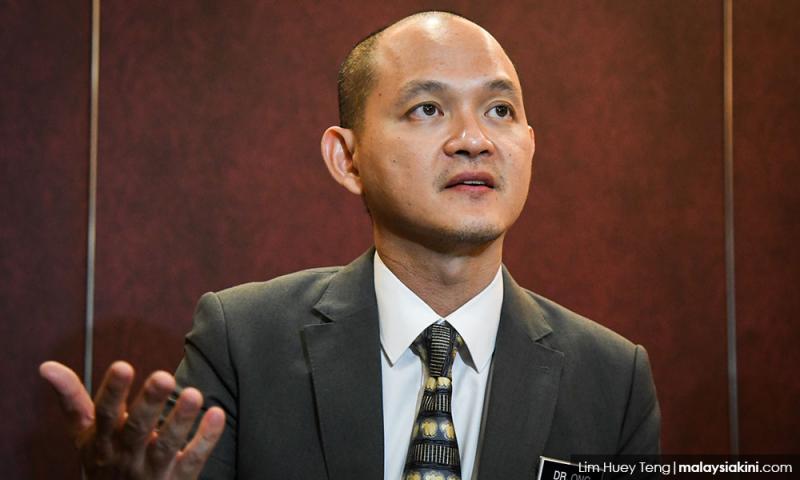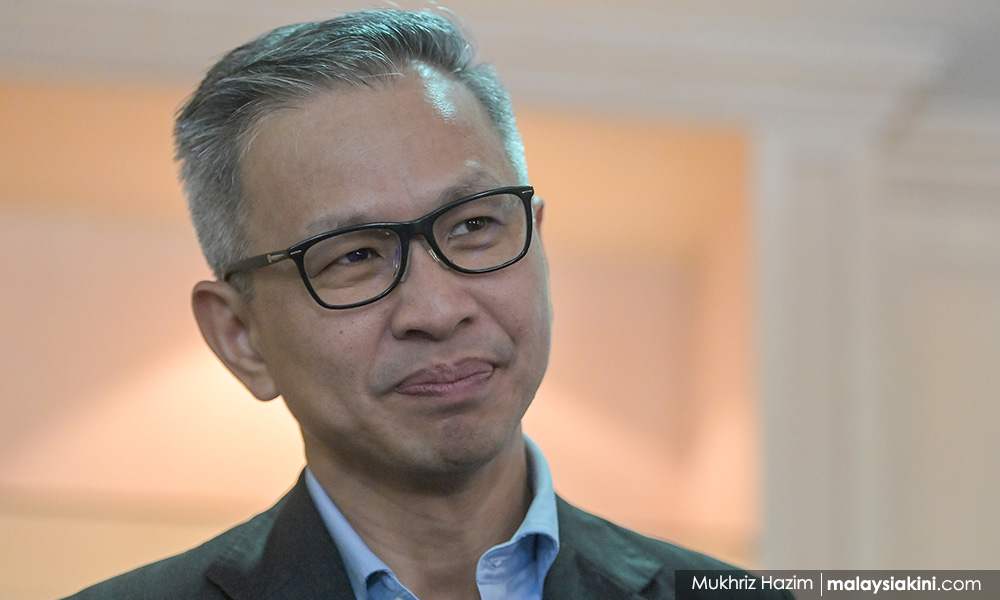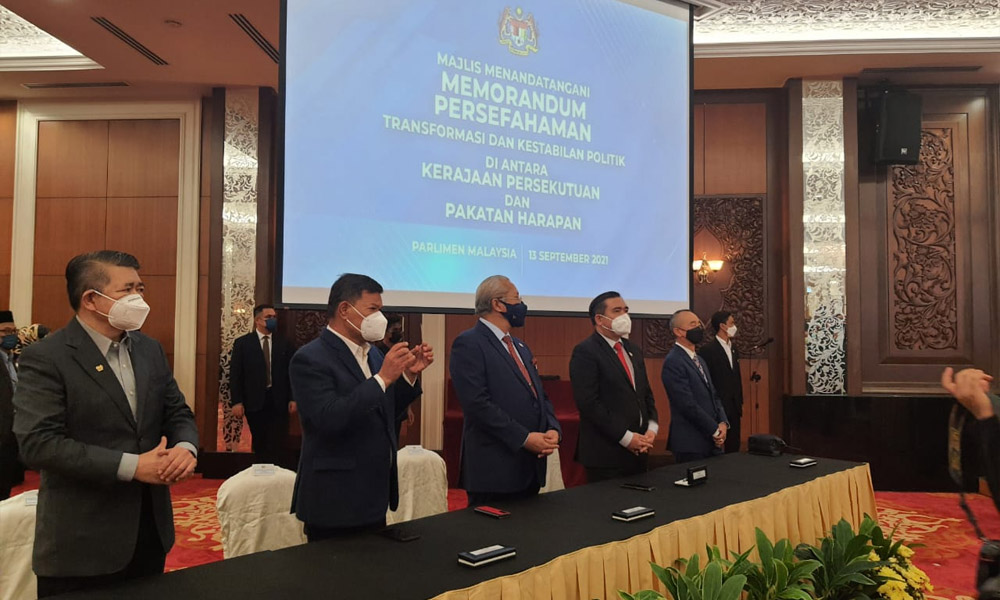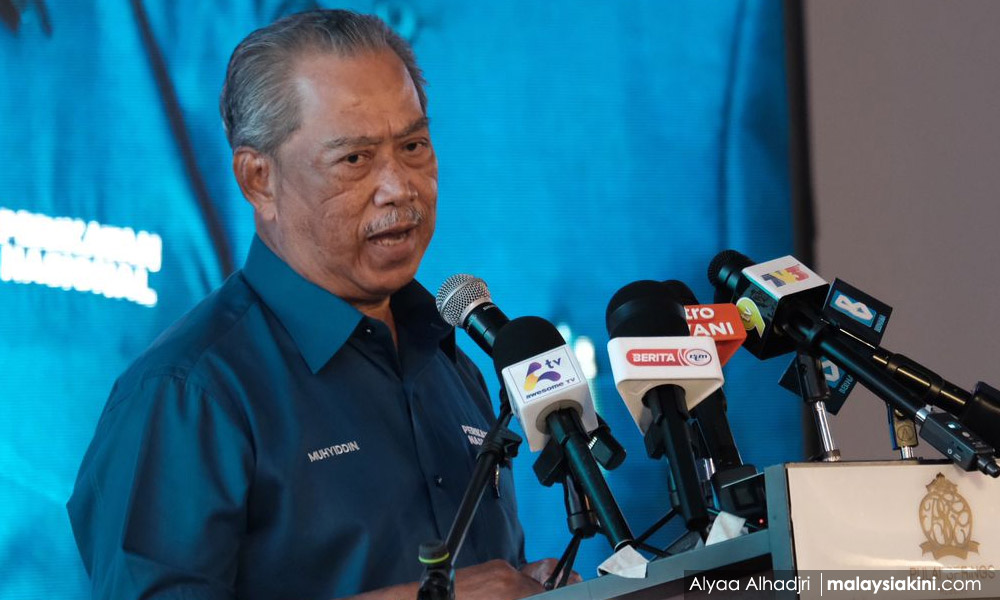
Harapan needs to keep options open - Kian Ming
INTERVIEW | In the dying days of the Muhyiddin Yassin administration, the outgoing prime minister did something unprecedented in Malaysian politics - begging the opposition to keep him in power.
In exchange, Muhyiddin offered a slew of institutional reforms, most of which opposition Pakatan Harapan had advocated for such as lowering the voting age, laws to prevent the defection of lawmakers, and term limits for the prime minister.
However, as the disdain for Muhyiddin within Harapan remained strong, only two Harapan MPs spoke in favour of the deal - Damansara MP Tony Pua and Bangi MP Ong Kian Ming (above).
This earned the duo the wrath of not just the public but also their allies and even those from their own party, the DAP.
In a recent interview with Malaysiakini, Ong said he felt vindicated now since Harapan eventually signed a similar confidence-and-supply agreement (CSA) with Prime Minister Ismail Sabri Yaakob in September last year.
“I feel that the role that Pua and myself played - in negotiating for the CSA that eventually led to the (deal) between Harapan and Ismail Sabri being signed - was justified.

Damansara MP Tony Pua
“Not because it vindicates what we were trying to do but because it can lead to more long-term structural changes to the political landscape in Malaysia. For example, the equal allocation for MPs regardless of whether they’re from government or opposition.
“Some laws have been changed. Even the constitution was changed for more emphasis on Sabah and Sarawak. Now, everyone is looking (forward to) the anti-hopping law.
“That was the first (CSA). Who knows, maybe we will have a role in pushing for a second,” said Ong.
‘Understandable’ to reject Muhyiddin’s offer
Muhyiddin had made the offer in response to 15 Umno MPs withdrawing support for him to continue as prime minister.
Harapan’s presidential council rejected the offer within hours. However, Harapan signed the CSA with Ismail Sabri a month later.
“Not because it vindicates what we were trying to do but because it can lead to more long-term structural changes to the political landscape in Malaysia. For example, the equal allocation for MPs regardless of whether they’re from government or opposition.
“Some laws have been changed. Even the constitution was changed for more emphasis on Sabah and Sarawak. Now, everyone is looking (forward to) the anti-hopping law.
“That was the first (CSA). Who knows, maybe we will have a role in pushing for a second,” said Ong.
‘Understandable’ to reject Muhyiddin’s offer
Muhyiddin had made the offer in response to 15 Umno MPs withdrawing support for him to continue as prime minister.
Harapan’s presidential council rejected the offer within hours. However, Harapan signed the CSA with Ismail Sabri a month later.

Pakatan Harapan and government leaders after signing a confidence-and-supply agreement
Ong said it was understandable why some DAP leaders found it difficult to accept Muhyiddin’s offer for a CSA at the time because the latter was facing massive public backlash.
“If you ask some of the party leaders now whether it would be better for us to have accepted it to prevent Umno and BN from coming back to power, I hope most would say yes.
“My answer will still be a yes. We should have taken Muhyiddin’s offer to avoid the situation where the ‘court cluster’ has a lot of power,” said Ong.
Ong’s pragmatism was on display again on March 13 when he wrote a detailed analysis of the Johor state election result, arguing that BN’s landslide victory was in a large part due to the split opposition vote.
At the time, Ong argued that there was no point in the opposition “killing each other” and in the process making BN stronger.
‘Be open to pacts’
In view of this, Ong argued that Harapan’s leadership has to be “flexible” and be open to negotiating an electoral pact with other opposition parties.
Ong still held this position and told Malaysiakini that being “flexible” doesn’t necessarily mean forming a government with the wrong people.
“What we have learned from the past two years after the Sheraton Move is that if we don’t have strategic thinking and if we’re not flexible, we will get played out by the other side - anyone that is better at scheming and planning than us.
“We can see Muhyiddin’s side planned better than us... He and Ismail Sabri came up with some sort of agreement to prevent (opposition leader) Anwar Ibrahim from becoming prime minister.
Ong said it was understandable why some DAP leaders found it difficult to accept Muhyiddin’s offer for a CSA at the time because the latter was facing massive public backlash.
“If you ask some of the party leaders now whether it would be better for us to have accepted it to prevent Umno and BN from coming back to power, I hope most would say yes.
“My answer will still be a yes. We should have taken Muhyiddin’s offer to avoid the situation where the ‘court cluster’ has a lot of power,” said Ong.
Ong’s pragmatism was on display again on March 13 when he wrote a detailed analysis of the Johor state election result, arguing that BN’s landslide victory was in a large part due to the split opposition vote.
At the time, Ong argued that there was no point in the opposition “killing each other” and in the process making BN stronger.
‘Be open to pacts’
In view of this, Ong argued that Harapan’s leadership has to be “flexible” and be open to negotiating an electoral pact with other opposition parties.
Ong still held this position and told Malaysiakini that being “flexible” doesn’t necessarily mean forming a government with the wrong people.
“What we have learned from the past two years after the Sheraton Move is that if we don’t have strategic thinking and if we’re not flexible, we will get played out by the other side - anyone that is better at scheming and planning than us.
“We can see Muhyiddin’s side planned better than us... He and Ismail Sabri came up with some sort of agreement to prevent (opposition leader) Anwar Ibrahim from becoming prime minister.

Former prime minister Muhyiddin Yassin
“A lot of people said that if I am suggesting flexibility, it means being in government with PAS and Bersatu. That’s not what I’m saying,” he said.
For Ong, he believed that it was important for Harapan to keep options open.
“If you keep options open, it will mean you can avoid a situation whereby, say, we don’t talk to PAS or Bersatu. Suddenly, they feel it is better for them to talk to Umno.
“That would be the worst-case scenario for us,” he said.
“A lot of people said that if I am suggesting flexibility, it means being in government with PAS and Bersatu. That’s not what I’m saying,” he said.
For Ong, he believed that it was important for Harapan to keep options open.
“If you keep options open, it will mean you can avoid a situation whereby, say, we don’t talk to PAS or Bersatu. Suddenly, they feel it is better for them to talk to Umno.
“That would be the worst-case scenario for us,” he said.
No comments:
Post a Comment